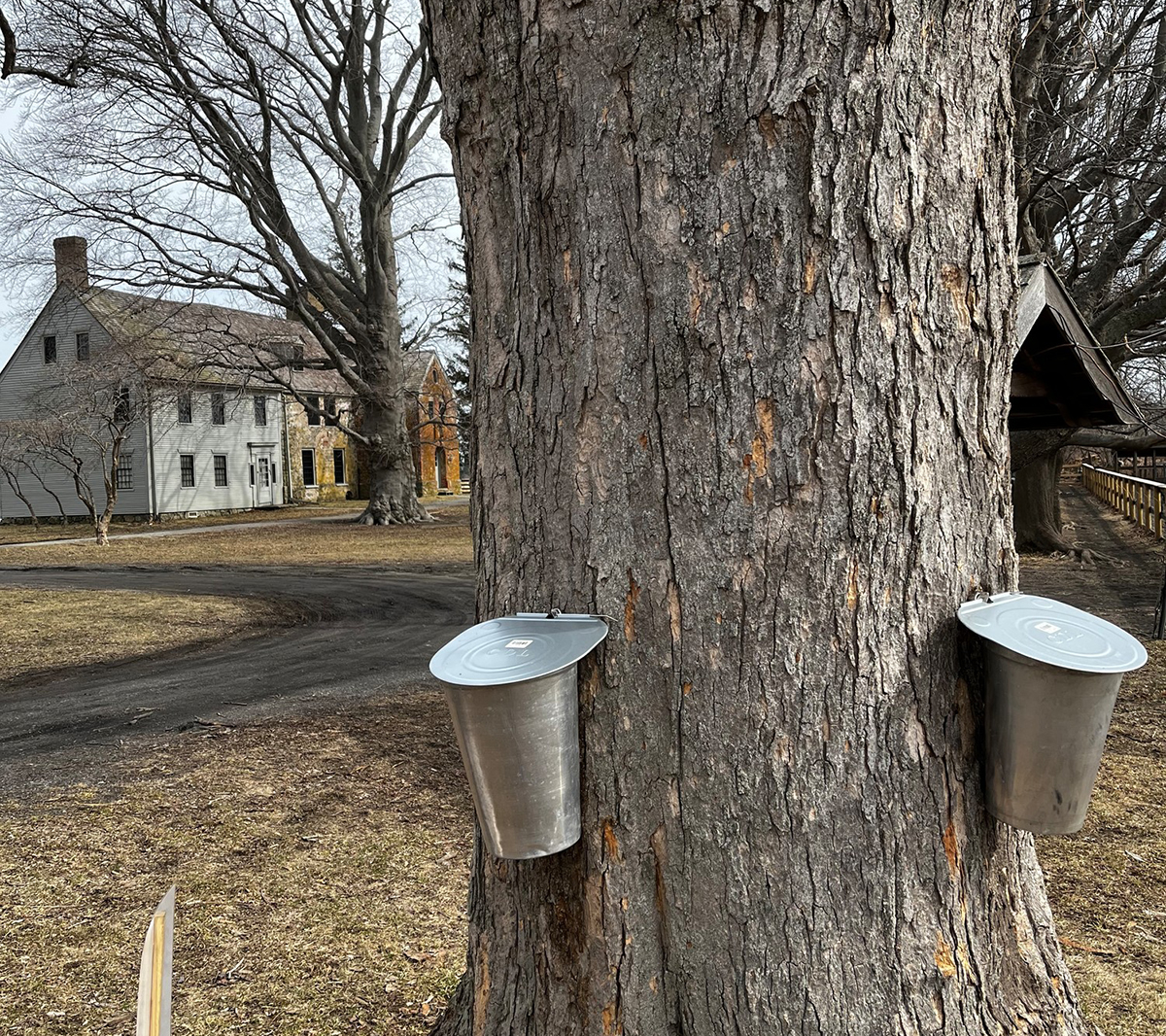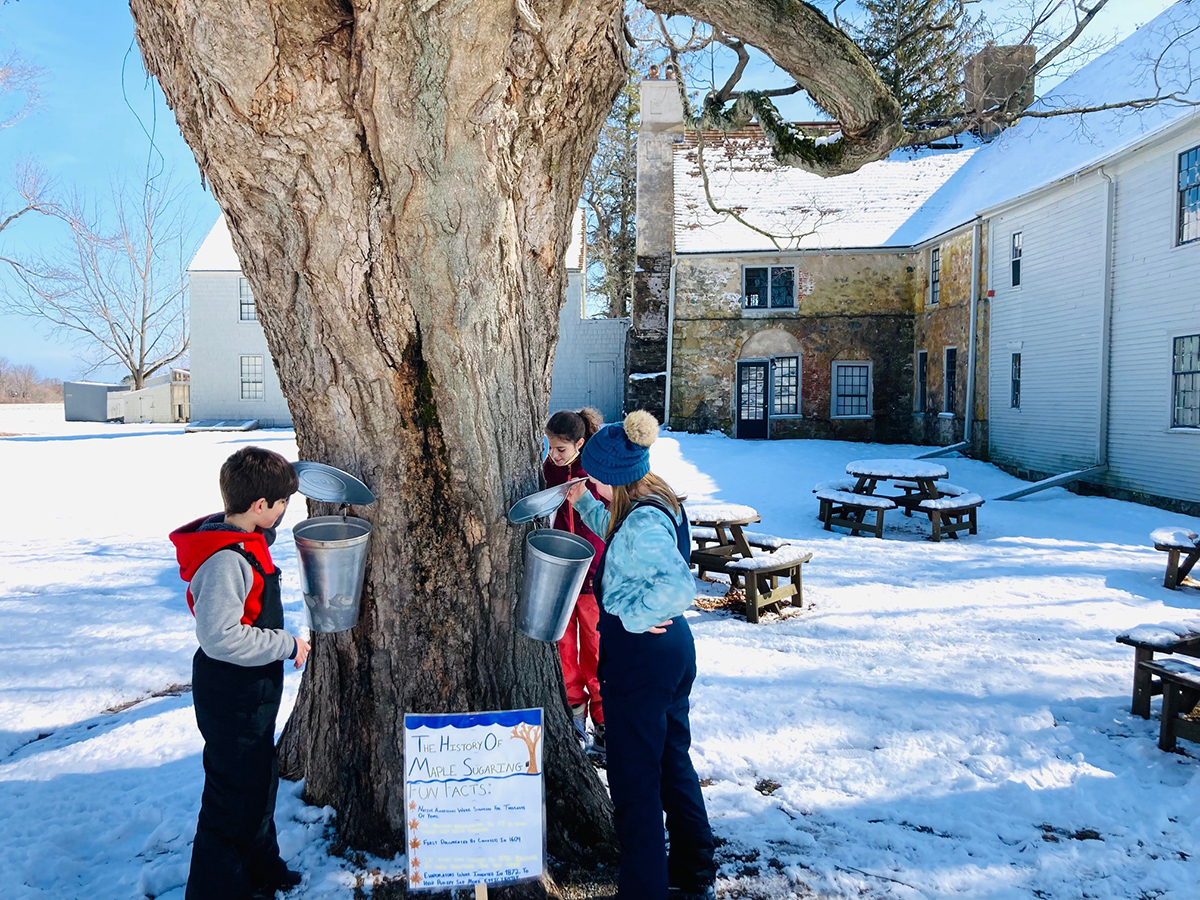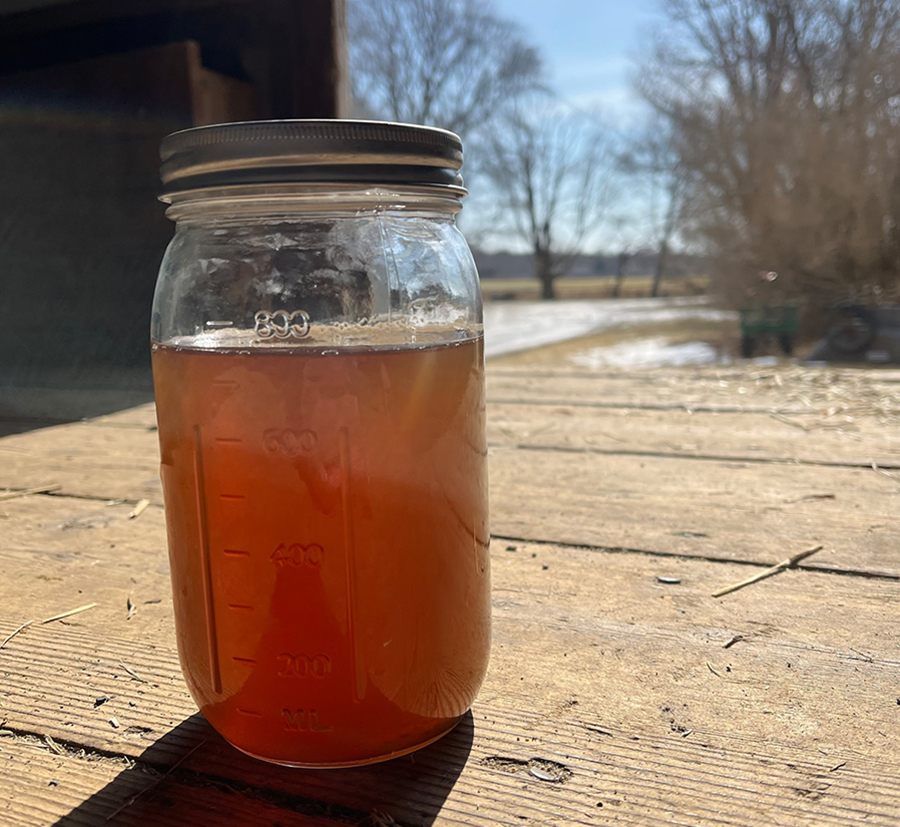For the past two school years, students from the River Valley Charter School in Newburyport, Mass., have spent many of their days not in a classroom, but at Spencer-Peirce-Little Farm. The arrangement started as both a pandemic-era mitigation strategy and a commitment to the ideals of the school, whose mission is “to provide a rigorous academic program based on the Montessori philosophy and rooted in the history, culture, and ecology of the Merrimack River Valley.”
The entrance to Spencer-Peirce-Little Farm is a long lane lined with stately maple trees. This year, the students in the Elementary 2 program (grades four through six), led by outdoor educators Mary Carpenter and Drew Balanoff, made those trees an integral part of their learning, capping off a two- month study of Native American history in the area through 1800, including information about Native American production and use of maple syrup, by making some syrup of their own.


Students studied the biology of maple trees – what sap is, what it does, and why it moves. Over the course of four visits to the farm, they identified the sugar maples and roughly dated them (estimating that the trees are between 220 and 240 years old), tapped individual trees and hung a bucket under each tap, collected the sap in five-gallon containers, then boiled the sap in metal pans held up by cinderblocks over a wood fire.
Students created colorful, informational posters demonstrating all aspects of their learning and displayed them by each tapped tree so that all visitors to the farm could benefit from their study.

In the end, the almost one hundred gallons of sap the students collected produced just enough syrup for each of them to take home a small jar, enough to pour over one or two plates of pancakes and to understand just how much work goes into creating this delicious elixir.
Visit our website for more information about Historic New England’s education programs.
Carolin Collins is the Education Program Manager for Historic New England.